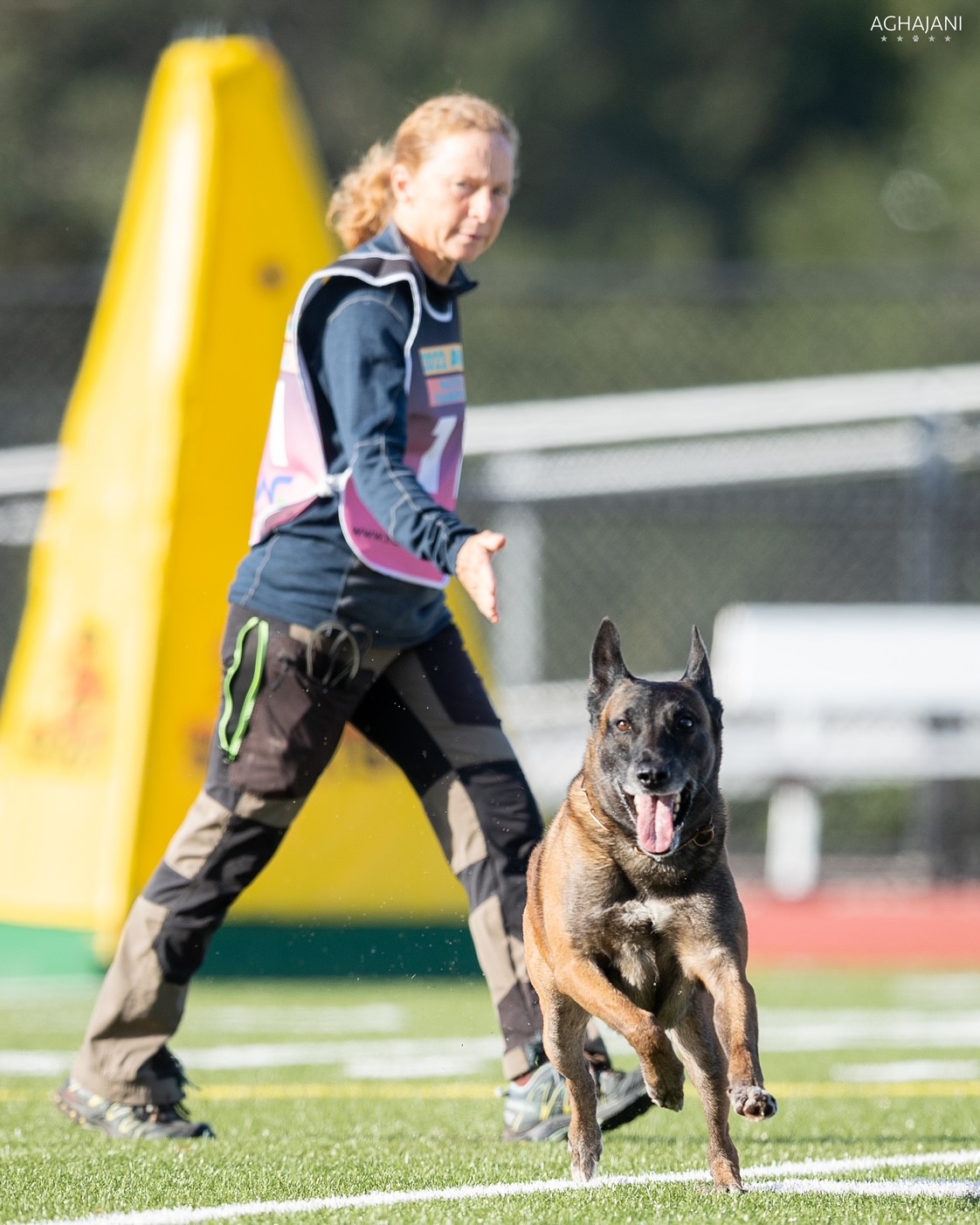
Four years ago, Trisha Harper was in the medical battle of her life. This week, she and her dog are in Romania to compete in the Belgian Shepherd Working Dog World Championships.
Harper, a transportation security specialist in the TSA Inspection’s Special Operations Division, is believed to be the first DHS employee to ever earn a spot in the games and will compete against over 100 canine teams from across the globe.
Harper’s championship journey was marked with a major medical comeback after suffering from a series of health challenges.

During tours in Afghanistan between 2008 and 2012, she suffered numerous concussions while working with explosives detection dogs, encountering almost daily ambushes. A few years ago, she began to experience blurry vision, searing headaches and concentration problems.
A neurologist found a benign cyst on her brain as a result of her multiple concussions.
Harper had to relearn how to walk, talk and do everyday functions, and she credits her Belgian Malinois, Einstein, for her recovery.
“My speech was affected, my memory was affected, my ability to walk and run was affected,” Harper recalled. “It was the sport (of working dog competitions) that served as an incredible sort of physical therapy for me to recover.”
However, as she fought her way back to health and trained with Einstein to contend in national working dog competitions, they faced some major hurdles.
“It was a struggle, because my medical issues impacted his effectiveness on the field,” said Harper, who joined TSA as a screening officer in 2012 after returning from Afghanistan, quickly moving up the ranks. “I couldn’t let my dog down. He had to recover as much as I did. It’s been sort of lovely that we got to this point and incredibly surprising, given how complicated my dog is and how many challenges I had coming through this. It’s an unusual story.”
The world championships kick off on Tuesday and run through Sunday, April 16. Harper and Einstein are one of four U.S. canine teams participating.
They will compete in IGP (an acronym for Internationale Gebrauchshunde Prüfungsordnung, a German name meaning International Working Dog Trial Regulations), historically called Schutzhund. The competition involves three major disciplines – obedience, tracking and protection.
- Obedience assesses the dog’s willingness to work with the handler and includes heeling exercises during which the dog is subjected to a gunshot test to determine their reaction to loud noises.
- Tracking assesses the canine’s ability to follow a scent in a precise manner while testing mental and physical endurance.
- Protection assesses the dog’s ability to follow directions while searching for and confronting a hostile adversary while under total control of the handler.
Harper competed against nearly 50 U.S. canine teams in the American Working Malinois Association National Championships in Mount Dora, Florida. She is the only American in the world competition who is not a professional dog trainer.

“My goal is to show the joy I feel competing on the field,” Harper said. “I’m incredibly humbled to represent the United States. It’s a dream come true for me. I’m really, really honored to be, who I understand, the first DHS employee who has made it.”
However, she notes several dog handlers from other U.S. government agencies have participated.
Despite not currently serving TSA as a canine professional, Harper has centered her life around working dogs since 1982. She started as an animal behaviorist with police departments in California and worked with the Mexico and Qatar military canine programs before building a security company in the U.S. that specialized in dogs. Her company trained dogs to deploy in the first Gulf War and Operation Enduring Freedom.

Despite her medical challenges and long recovery, Harper calls herself “a lucky person.”
“I was incredibly fortunate to qualify,” she noted. “Einstein is an incredible but challenging dog. I really have no expectation of placing. I’m doing it for the joy of the sport, working with a dog and learning as I work. When we step onto the competition field, what’s important is that he is confident and happy and knows what he’s supposed to do and that we work well together. That’s really my goal.”
Harper said TSA has been marvelous to her during her recovery and training and credits her leadership for giving her the flexibility to compete in an event like the world games.
“They really rallied to make this possible,” she emphasized. “They were OK with me taking three weeks of leave, and I worked hard to make sure my leaving wasn’t an inconvenience for them. It’s an incredibly supportive office. I’ve never felt as though I haven’t been supported as an employee of TSA, no matter what office I’ve been in. I’ve made incredible friends here.”
By Don Wagner, TSA Strategic Communications and Public Affairs
